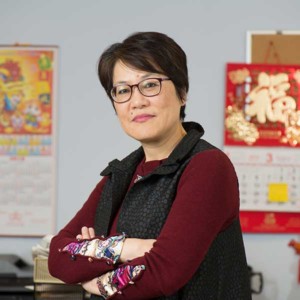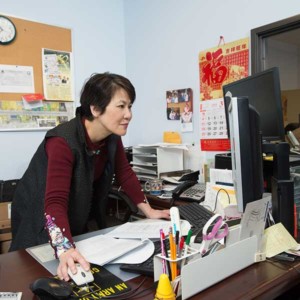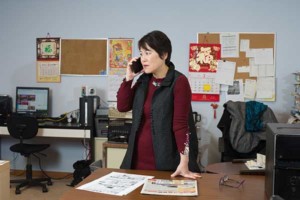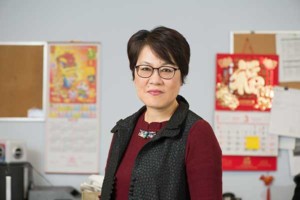“We helped people step out of their house and really join the community and maybe set up groups to help each other, but now, I want to go a little bit further I would like to let people know that they need to come out and vote.”
— Rosaline Hui
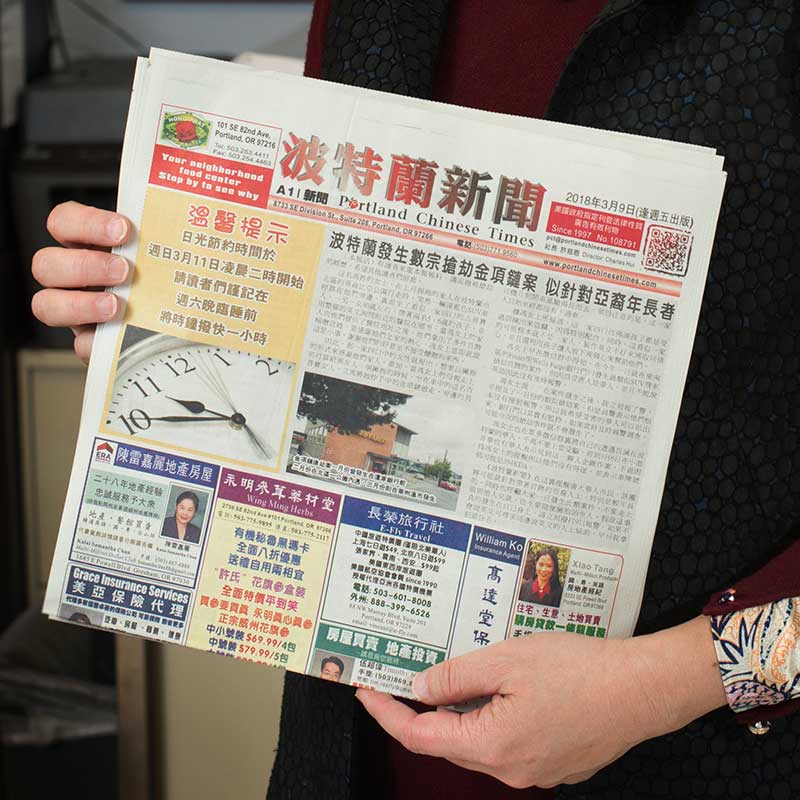

In 1992 Rosaline Hui and her husband immigrated to the U.S. from Hong Kong to be close to their family. Rosalie struggled to find community when she first arrived, “Portland didn’t have a very big Chinese community and, for us, it’s just a very small town,” she says. “Hong Kong is a very international and vibrant city.”
Although Hui had only recently arrived to the city, she was determined to better connect the growing Chinese community. In Hong Kong, Hui worked in secretarial management and her husband was a music professor, but in Portland, their previous careers were no longer an option. “[We] felt so upset when we came here and were looking for a job,” she says. “They don’t count your college degree so that means if you want to have a degree, you have to start over again.”
Completely starting over wasn’t a viable option for the Huis, both in their mid-30s at the time, and after five years in Portland, they were approached by a Chinese-language newspaper group based in Texas (now known as the Southern News Group.) Though Hui still doesn’t quite know why they were solicited, the group proposed the couple launch a free weekly paper in Portland. The prospect of simultaneous roles as workers and bosses enticed them.
More than two decades later, the Portland Chinese Times has become a vital lifeline of connection and information for the Chinese community in Portland and beyond. “We just want to be a communication channel for the Chinese community and the mainstream,” Hui says. “So from the very beginning, that is the way that we [did] it.”
Today, the Portland Chinese Times is published every Friday, both online and in print. In addition to managing a website since the early 2000s, they maintain a Facebook page and recently added a WeChat channel. News stories, classified ads, and an event calendar comprise the majority of the paper. But in 1997, the atmosphere was far more hectic. “At first, it was quite hard and a lot of effort,” she says. In addition to having to pull occasional all-nighters to meet deadlines, the paper struggled to be seen as a viable publication worthy of media passes. But a call after the third issue debuted swiftly reaffirmed their efforts and mission.
“[It] was an old lady speaking Chinese and she said, ‘I want to thank you so much for your work. I have been living here for over 20 years and I have never had a Chinese language [resource] that let me know what’s going on around me. My life, all the time I’ve been in the U.S., has been taking a bus, go to work, taking a bus, go to buy groceries. That’s all. I [didn’t] know where to go.’ And then she cried. It moved me, and I said, ‘Oh, this is really something that can help people.’”
Beyond continuing to connect the Chinese community through her newspaper, Hui also began a successful Chinese New Year’s festival in 2000. Nearly two decades later, there are so many cultural events in town Hui may never feel bored again.
Hui has been increasingly active with community organizing in the Jade district and regularly testifies at City Hall to protect Jade district business owners. She wants to prevent the area from experiencing the same pattern of gentrification she witnessed in Chinatown, and now she’s expanding her mission to help others learn how to get involved in community organizing.
“[I’ve seen how] we helped people step out of their house and really join the community and maybe set up groups to help each other, but now, I would want to go a little bit further,” she says. “I would like to let people know that they need to come out and vote… We need to know how [the Chinese] community can get involved and have a voice… This is our home.”
Storyteller: Emily Prado| Photos: Kim Nguyen | Published: July 2018
Follow:

